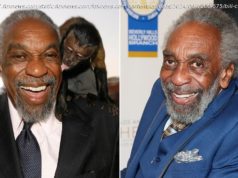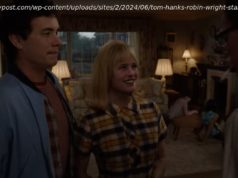 On Tuesday morning, the Prime Minister Theresa May made her overtures to Europe. Britain wanted to be, she declared “the best friend and neighbour to our European partners”.
On Tuesday morning, the Prime Minister Theresa May made her overtures to Europe. Britain wanted to be, she declared “the best friend and neighbour to our European partners”.
But on the other side of the world, her Foreign secretary was stirring up trouble. Boris Johnson, on a trade mission to India, said of the French President:
“If Mr Hollande wants to administer punishment beatings to anybody who seeks to escape [the EU], in the manner of some World War Two movie, I don’t think that is the way forward, and it’s not in the interests of our friends and partners.”
His comments were widely condemned, with EU Brexit negotiator Guy Verhofstadt calling them “abhorrent”.
David Davis, the Brexit secretary, then piled in with the declaration: “If we can cope with World War Two, we can cope with this. »
But this isn’t the first time the Brexiteers seemed to be under the impression they are part of a historical re-enactment society. Here are some of the others:
1. When Michael Gove compared economist to Nazis
During the EU referendum campaign, when economic organisation after economic organisation predicted a dire financial hangover from Brexit, the arch-Leaver Tory MP is best known for his retort that people “have had enough of experts”.
But Gove also compared economic experts to the Nazi scientists who denounced Albert Einstein in the 1930s, adding “they got 100 German scientists in the pay of the government to say he was wrong”.
(For the record, the major forecasts came from a mixture of private companies, internationally-based organisations, and charities , as well as the Treasury).
Gove later apologised for his “clumsy” historical analogy. But perhaps his new chum, Donald Trump, took note. In a recent tweet attacking the US intelligence agencies, he demanded : “Are we living in Nazi Germany?”
2. When Leave supporters channelled Basil Fawlty
Drivers in Oxfordshire had their journey interrupted by billboards declaring: “Halt Ze German Advance! Vote Leave”.
‘Stop Ze German advance’ xenophobia on M40 from overenthusiastic Outers. unauthorised, by « dummies » say @vote_leave pic.twitter.com/xNKQkyLEec
— Sunder Katwala (@sundersays) May 29, 2016
The posters used the same logo as the Vote Leave campaign – although as the outcry spread Vote Leave denied it had anything to do with it. Back in the 1970s, all-Germans-are-Nazi views were already so tired that Fawlty Towers made a whole episode mocking them.
Which is just as well, because the idea of the Nazis achieving their evil empire through tedious regulatory standards directives and co-operation with French socialists is a bunch of bendy bananas.
3. When Boris Johnson said the EU shared aims with Hitler
Saying that, Boris Johnson (him again) still thinks there’s a comparison to be had.
In May, Johnson told the Telegraph that while Brussels bureaucrats are using “different methods” to Hitler, they both aim to create a European superstate with Germany at its heart.
Hitler wanted to unite the German-speaking peoples, invade Eastern Europe and enslave its people, and murder the European Jews. He embraced violence and a totalitarian society.
The European Union was designed to prevent another World War, protect the rights of minorities and smaller nations, and embrace the tedium of day-long meetings about standardised mortgage fact sheets.
Also, as this uncanny Johnson lookalike declared in the Telegraph in 2013 , Germany is “wunderbar” and there is “nothing to fear”.
4. When this Ukip candidate quoted Mein Kampf
In 2015, Kim Rose, a Ukip candidate in Southampton, decided to prove his point that the EU was a monstrosity by quoting from a well-known book.
The author recommended that “the best way to take control” over a people was to erode it “by a thousand tine and almost imperceptible reductions”.
Oh, and the book was Mein Kampf , Hitler’s erratic, rambling, anti-Semitic pre-internet conspiracy theory. As Rose explained : “My dad’s mother was Jewish. Hitler was evil, I’m just saying the EU is evil as well.”
As my wife and I watched Brexit: the Musical , performed in a tiny theatre above a pub in London’s Little Venice, I thought of the American novelist Lionel Shriver’s comment on Donald Trump’s inauguration: “A sense of humour is going to get us through better than indignation.” It is an entertaining, engaging and amusing show, which makes the point that none of the main actors in the Brexit drama – whether supporters of Leave or Remain – achieved quite what they had intended. The biggest laugh went to the actor playing Boris Johnson (James Sanderson), the wannabe Tory leader who blew his chance. The mere appearance of an overweight man of dishevelled appearance with a mop of blond hair is enough to have the audience rolling in the aisles.
The lesson we should take from Brexit and from Trump’s election is that politicians of all shades, including those who claim to be non-political insurgents, have zero control of events, whether we are talking about immigration, economic growth or the Middle East. We need to tweak Yeats’s lines: the best may lack all conviction but the worst are full not so much of passionate intensity – who knows what Trump or Johnson really believe? – as bumbling incompetence. The sun will still rise in the morning (as
Barack Obama observed when Trump’s win became evident), and multinational capital will still rule the world. Meanwhile, we may as well enjoy the show.
Danger of Donald
Nevertheless, we shouldn’t deny the risks of having incompetents in charge. The biggest concerns Trump’s geopolitical strategy, or rather his lack of one. Great power relations since 1945 have been based on mutual understanding of what each country wants to achieve, of its red lines and national ambitions. The scariest moments come when one leader miscalculates how another will react. Of all figures in recent history, the Soviet leader Nikita Khrushchev, with his flamboyant manner and erratic temperament, was probably the most similar to Trump. In 1962, he thought President Kennedy, inexperienced and idealistic, would tolerate Soviet missiles in Cuba. He was wrong and the world only narrowly avoided nuclear war.
How would Trump respond to a Russian invasion of the Baltic states? Will he recognise Taiwan as an independent country? Will he scrap Obama’s deal with Iran and support a pre-emptive strike against its nuclear ambitions? Nobody knows, probably not even Trump. He seems to think that keeping your options open and your adversaries guessing leads to “great deals”. That may work in business, in which the worst that can happen is that one of your companies goes bankrupt – an outcome of which Americans take a relaxed view. In international relations, the stakes are higher.
Right job, wrong time
I rather like Tristram Hunt, who started contributing to the New Statesman during my editorship. He may be the son of a life peer and a protégé of Peter Mandelson, but he is an all-too-rare example of a politician with a hinterland, having written a biography of Engels and a study of the English Civil War and presented successful TV documentaries.
Home
United States
USA — Cinema The 4 most unfortunate Nazi-EU comparisons made by Brexiteers What I learnt...






